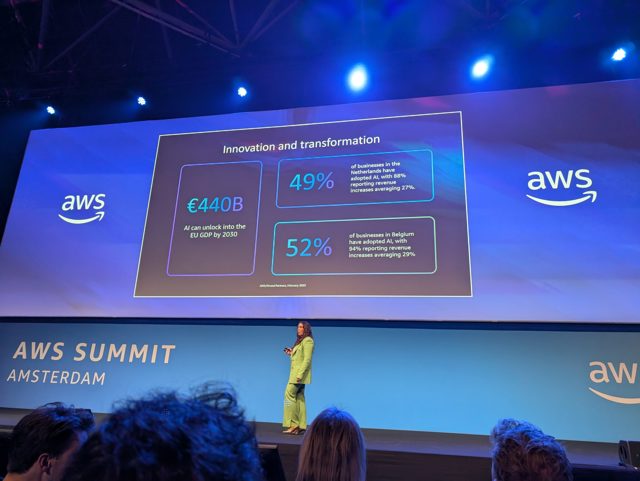< Back to news
With examples such as the large-scale deployment of smart drones by Ukraine and the autonomous detection of missiles by Israel's Iron Dome system, we see a rapidly evolving landscape in which AI plays an increasingly important role on the battlefield. These developments bring new challenges, where traditional rules of war and international law may no longer be sufficient.
Kwik's research highlights the complexity of AWS and raises important questions about how these systems fit within the existing legal framework of warfare. The autonomy of these systems, their ability to make independent decisions, and the unpredictability of their actions all contribute to the challenge of applying traditional principles of responsibility.
This issue requires in-depth discussion and awareness, not only within military and legal circles, but also among the broader public. As we move into the future of warfare, we must continue the dialogue on leveraging AI's benefits without losing sight of our ethical principles and responsibilities.
The full article in Het Parool provides an in-depth analysis of these issues and is a must-read for anyone interested in the intersectionality of technology, ethics and warfare. It invites us to think about the future we want to shape and how we can navigate the challenges ahead with wisdom and prudence.
Read more here.
Published by Het Parool.


20 February 2024
Between Innovation and Ethics: AI-Driven Weapons Under the Scrutiny
At a time when artificial intelligence (AI) is gaining traction, we are at a critical crossroads where technological advances are challenging our traditional views on warfare.
The recent research of war law lawyer Jonathan Kwik, presented in an article by Het Parool, shines a spotlight on this complex issue, specifically focusing on the implications of autonomous weapon systems (AWS) and the need for human control.
With examples such as the large-scale deployment of smart drones by Ukraine and the autonomous detection of missiles by Israel's Iron Dome system, we see a rapidly evolving landscape in which AI plays an increasingly important role on the battlefield. These developments bring new challenges, where traditional rules of war and international law may no longer be sufficient.
Kwik's research highlights the complexity of AWS and raises important questions about how these systems fit within the existing legal framework of warfare. The autonomy of these systems, their ability to make independent decisions, and the unpredictability of their actions all contribute to the challenge of applying traditional principles of responsibility.
This issue requires in-depth discussion and awareness, not only within military and legal circles, but also among the broader public. As we move into the future of warfare, we must continue the dialogue on leveraging AI's benefits without losing sight of our ethical principles and responsibilities.
The full article in Het Parool provides an in-depth analysis of these issues and is a must-read for anyone interested in the intersectionality of technology, ethics and warfare. It invites us to think about the future we want to shape and how we can navigate the challenges ahead with wisdom and prudence.
Read more here.
Published by Het Parool.
Vergelijkbaar >
Similar news items

April 23, 2025
Dutch government expands AI use, urges focus on European alternatives
The Dutch government is relaxing AI rules for civil servants while encouraging the use of European models to reduce dependence on non-EU technologies.
read more >

April 23, 2025
AI model at Amsterdam UMC speeds up lung cancer diagnosis
Amsterdam UMC uses an AI model that detects lung cancer up to four months earlier than GPs—enabling faster diagnosis and improving survival prospects.
read more >

April 16, 2025
AWS: Dutch businesses are adopting AI faster than the European average
New research from AWS shows that Dutch businesses are rapidly adopting AI—at a rate of one new implementation every four minutes, well ahead of the European average.
read more >